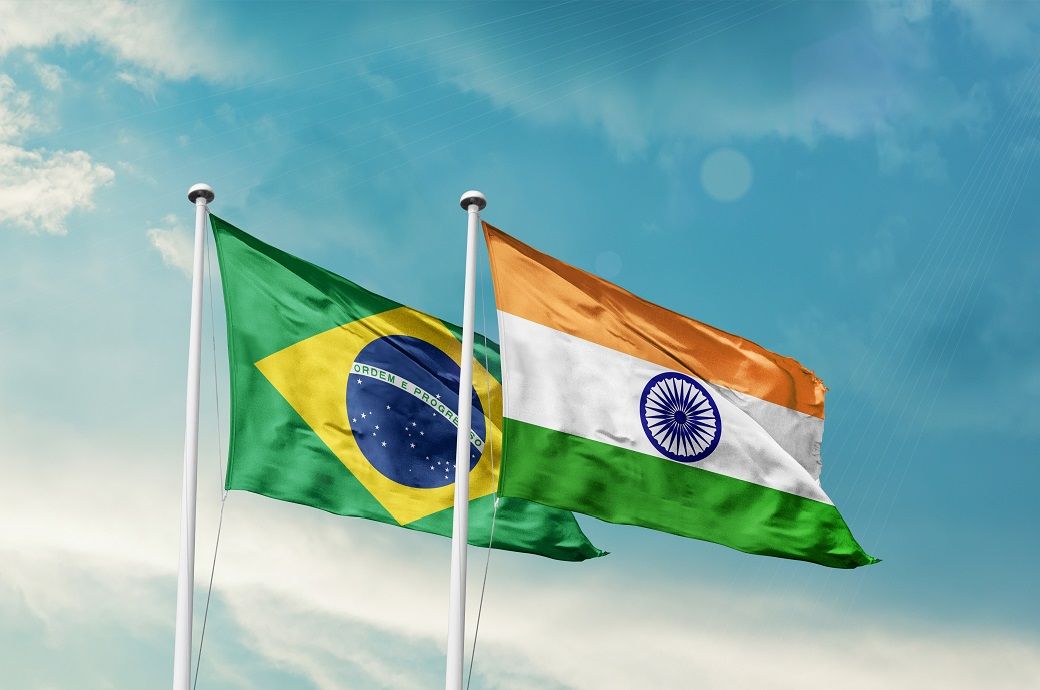
“This year exports from India to Brazil grew over 30 per cent and exports from Brazil are also growing. We will overcome the foreign trade target of $20 billion in 2030. Both countries do not compete but complement each other. Brazil is opening its doors to Indian investment, and together we can transform our economies and forge a strong Brazil-India alliance for the future,” said Alckmin.
Addressing the ‘India-Brazil Business Dialogue’, organised jointly by FICCI, ApexBrasil and CNI, Alckmin stated that Brazil sees India a priority partner for the diversification of exports and investments. The advancements in cooperation in the investment facilitation agreement to avoid double taxation creates a business environment that is predictable and safer. “We want to broaden the Preferential Trade Agreement so that our trade flows broaden. We want to strengthen our long-term cooperation in the civil and defence areas,” he emphasised.
“We are ready to launch a digital partnership Brazil-India towards AI, high performance computing and technological start-ups. This digital partnership will be a driving force for the new green and digital economy thereby creating more jobs and technological sovereignty,” added Alckmin.
Piyush Goyal, Minister of Commerce and Industry, Government of India, stated that India aims to be the fastest-growing large economy for another 20 years. He noted the IMF's increased GDP growth forecast to 6.6 per cent and India's consistent performance. He highlighted that the IMF has revised India’s growth projection for 2025 upward from 6.4 per cent to 6.6 per cent. He added that in the last 12 years, 250 million Indians have been lifted out of poverty, creating a strong and aspirational middle class that now drives the nation’s consumption and growth story.
Goyal emphasised that India’s welfare and infrastructure investments are working in tandem to create a more inclusive and sustainable economy—ensuring that every citizen has access to food, housing, education, healthcare, electricity, digital connectivity, and clean water. He reiterated the government’s commitment to structural reforms, ease of doing business, and reducing compliance burdens. “The efforts by the government have strengthened investor confidence and positioned India to become the world’s third-largest economy in the near future, aiming for a $30–35 trillion economy by 2047,” he stressed.
Goyal underlined that under the leadership of Prime Minister Modi, India’s growth story rests on three strong pillars. The first pillar is creation of robust macroeconomic fundamentals; second pillar is focused on taking modern, high-quality infrastructure to remotest corners of the country and the third pillar includes improving the quality of life of the people, FICCI said in a press release.
“The government has maintained low inflation, ensured consistent growth, fortified the banking system, and built one of the strongest foreign exchange reserve positions in the world. The government has also reduced the income tax burden on the middle class and simplified the Goods and Services Tax (GST) system to make business processes easier,” added Goyal and highlighted that these measures enable citizens to have greater spending capacity and a better quality of life for their families.
Harsha Vardhan Agarwal, president, FICCI and vice chairman & MD, Emami Ltd, said that India and Brazil are natural partners in shaping a more balanced and inclusive global order. “Through frameworks such as IBSA, BRICS, the G20, and the United Nations, our nations have stood together to amplify the voice of the Global South and to advance cooperation in food security, health resilience, energy transition, and climate action,” he added.
Frederico Lamego, superintendent of International Relations, National Confederation of Industry (CNI) said that they are re-launching the business council between India and Brazil with the objective to create a purposeful agenda for businesses.
Ana Repezza, director of Business at ApexBrasil, addressed the India-Brazil Business Dialogue, highlighting the vast scope for trade between India and Brazil. She expressed optimism about expanding trade between India and Brazil in areas such as food security, energy, and more.
During the event, Terms of Reference (ToR) for the India-Brazil Business Leaders Forum between FICCI and CNI were exchanged.
ALCHEMPro News Desk (RR)
Receive daily prices and market insights straight to your inbox. Subscribe to AlchemPro Weekly!